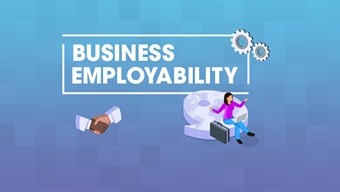Ibz Mo cuts straight to the chase when asked about the ambition behind his YouTube channel. “My goal was to be able to inspire someone from a similar background to myself and encourage them to apply to Oxbridge” he tells Verdict. Originally thinking it would take him at least five years to achieve this aim, it only took Mo a couple of months.
By Editorial Team. 2 November 2022.
“I wanted to inspire someone who was from a working-class/ethnic minority background just by being myself. In only a few months I was receiving messages back from subscribers telling me that they’d applied thanks to my channel.”
Five years on from the start of his channel, which now stands at over 130,000 subscribers, Mo has found that more and more students from “non-traditional” backgrounds are now applying, interviewing successfully, and getting into Oxbridge.
It’s clear then that the work being put in by the likes of himself and other is paying off; something Mo can cite from his own experience. “During my time at Oxbridge over the last four to five years, there has been a significant increase in representation, in terms of institutional attitudes, outreach, visibility of students, and embracing ethnic diversity. It’s amazing to see.” But, he cautions, there’s still a lot of room for change, especially in the collegiate system. “Every college is different -- and the system is amazing -- it allows people to socialise and enjoy unique experiences. But equally it avoids transparency -- it avoids having to answer questions about what we are doing or not doing as a university.”
He would therefore encourage prospective university and law applicants to be brave and veer from the conventional path. One aspect of his experience that has helped grow his knowledge base is his extensive experience interning and networking in Pakistan, Malaysia and Singapore. “I did internships around a range of places in Asia to experience and understand different types of law. Corporate isn’t the only type of law -- you can go to another place and learn about how law is implemented in different jurisdictions.” So, would he recommend taking the opportunity to intern or network abroad should the opportunity arise? “Absolutely”, he tells Verdict. Get international experience as opposed to just law experience in the UK -- law is wholly international in nature after all.”
Mo has also taken up a research fellowship with the Muslim Lawyers Action Group, a professional organisation dedicated to working on cases that affect the Muslim population in the UK and overseas. Describing the role as “great preparation for my training contract”, Mo frequently gets the opportunity to leverage his skills in outreach, while at the same time working with clients, forming a key part of his transition from his work in outreach into private practice. With his YouTube channel continuing to inspire, Mo remains motivated to work for causes he’s passionate about, including pro bono and volunteering. But for now, he says, “I’m starting to realise what my interests are professionally. What am I reading online? What am I attracted to? What inspires me?”
These questions will echo the thoughts of all those looking to identify their ideal practice area as they make their way in their law careers. Having now secured a training contract, he shares his advice to those looking to follow in his footsteps. “Make sure you carry on your vacation scheme and training contract interview relationships. I didn’t get a training contract from a vacation scheme -- but I made sure I continued conversations later on. Your network can really be your net worth. Get to know as many people as you can.”
When it comes to the application stage itself then, Mo highlights the importance of being “specific”. Demonstrating a keen interest in a particular firm is sure to improve your chances of succeeding. “Be picky with your law firms. I had only one in mind and really did my research. I spoke to lawyers who had left the firm too as they could be as honest as they wanted to be with their opinions.” Maintaining a support group has always been important to him, both during his studies and when he began applying for jobs. “Don’t be scared to get advice. Always, always ask for help. Seek a mentor, and don’t be afraid to ask someone to look over your CV or your application. You might think it’s difficult to feel like you’re relying on someone else, but in this field, it’s all networking!”
Following on from a conversation Mo had earlier this year with Shehzad Charania MBE, who moved from corporate law into national security, he explains how he has also felt the effects of ‘imposter syndrome’ as a high-achieving ethnic minority individual within white-dominated settings. He describes his sense of feeling like a minority at university, and how law has been even more isolating, but uses his experiences to offer some words of advice to others feeling a similar way.
“I was open about discussing issues of diversity and inclusivity. I always did, despite being around lots of white people. I was honest, I sought help, and voiced my opinions. Be your authentic self. Understand how unique your human capital is. I would speak about my experience working with diverse communities, speaking different languages, and what that can offer a firm, understanding my human capital beyond legal skills.”
In his concluding remarks, Mo reflects on his ambitions for the future. Needless to say, Mo intends to continue producing content online, inspiring others to achieve their potential with his guidance and support, and to be a disruptive presence towards institutions and processes where the odds appear stacked against applicants from low-income and/or minority backgrounds. Ultimately, he wants the platform to carry on the conversation. “I can vlog and help people reach Cambridge, but what happens once they’re there?”.
This article was first published in our Verdict magazine – Read our Equality, Diversion & Inclusion Special now.



